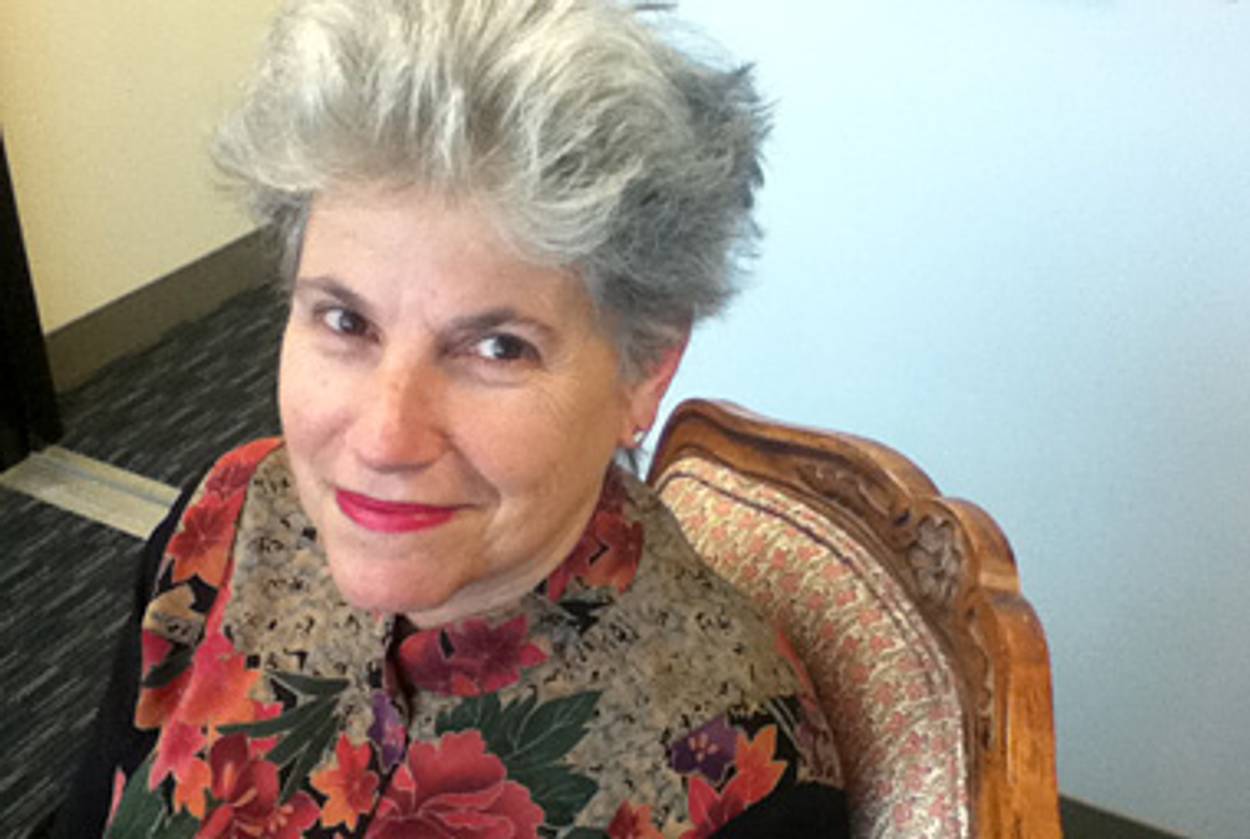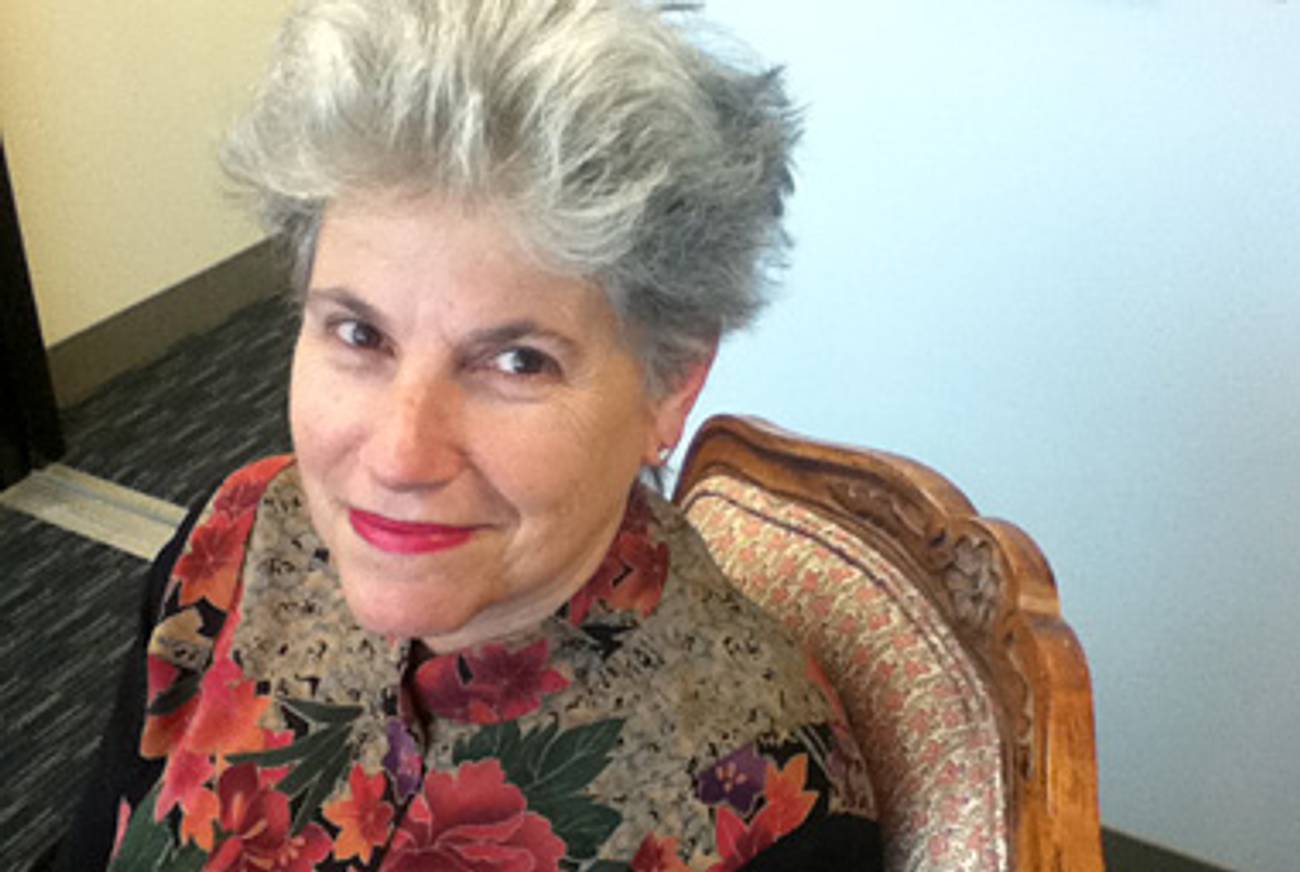Sexual Healing
Doreen Seidler-Feller, a Los Angeles psychologist, observant Jew, and rabbi’s wife, has a thriving practice as a sex therapist to the Orthodox




It takes a lot to shock Doreen Seidler-Feller. And yet the Los Angeles psychologist is quick to recall one memorable therapy session several years earlier, when her patient—a young, Orthodox married man—told her of what might happen if he dared gaze at his wife’s genitalia: His unborn children could turn out deaf and blind.
This was a new one for Seidler-Feller, who has built a thriving practice as the go-to sex therapist for L.A.’s sizable Orthodox population. “It was stark, and it was revelatory, and it was disturbing,” she said.
A silver-haired Modern Orthodox Jew who does not wear a sheitl, or a wig, as many of her patients do, Seidler-Feller, 62, says she aspires to make a “cultural dent” in the cloistered world of Judaism’s most pious adherents. “There’s a little bit of the messianist in me,” she said in an interview from her airy office in L.A.‘s Westwood neighborhood.
To help understand this particular patient’s fears, she turned to her rabbi—who also happens to be her husband of 35 years, Chaim Seidler-Feller, the longtime head of UCLA’s Hillel. He found the passage to which the patient was referring in the Kitzur Shulchan Aruch, the 19th-century abridged tome of Jewish law that is widely used as a guidepost for Orthodox Jews on matters of intimacy.
“Clearly the Shulchan Aruch preserves a point of view that is medieval about the fears that existed at that time—and up until Freud’s time—about the vagina and what its powers are,” said Seidler-Feller, the accent of her native South Africa still prominent. “But the point is that it was alive today, in this room.”
What also struck Seidler-Feller, whose work with Orthodox couples comprises about 40 percent of her clinical-psychology practice, was that the notion troubling that married patient derived from a minority rabbinic opinion. That the opinion has survived in the commentary alongside the far more permissive majority opinion written by the 3rd-century rabbi, Yochanan bar Nafcha, vexes her.
But Seidler-Feller’s clinical work can only reach so many, as she says, and several years ago, she and her husband decided to go on the road. At Jewish learning conferences such as Limmud, they unpack what Judaism has to say about sex, with Rabbi Seidler-Feller exploring the textual sources and Dr. Seidler-Feller providing the psychological context. “We want to show people that the majority opinions are permissive with respect to marital sexuality,” she said. “And not only permissive, but instructive.”
The child of a Czech Auschwitz survivor, Seidler-Feller was raised in a nonobservant home where the memories of the Holocaust were palpable; her mother had lost both of her parents, as well as her first husband, by the time she turned 18. Her mother’s tragic past, coupled with her parents’ early divorce, led Seidler-Feller to pursue a career in psychology. “When you have experiences that fracture you psychically, you can try to deal with them in many ways,” she said. “One is writing novels, and another is becoming a psychologist.” At the same time, she said, the traumatic events of her childhood led her to seek out traditional Judaism. By the time she met her husband in 1973 at Ohio State University, where she was pursuing a doctorate and he was the new Hillel rabbi, she had already traveled to Israel and immersed herself in Jewish study.
In her office, decorated with unassuming flower prints—she’d removed a Gauguin print that featured a nude figure after an ultra-Orthodox man complained—Seidler-Feller explained that about 15 years ago, she began to think of Orthodox Jews, particularly the ultra-Orthodox, as culturally underprivileged; she likened it to the digital divide.
“It makes my heart sad that, in the modern world, with all that we have available to us, the sort of information that could so enhance the quality of their lives is unavailable to them because nobody is doing the active translation that is required,” she said.
When she completed the UCLA human sexuality program in the late 1970s, the Orthodox population was far more skeptical of psychotherapy than it is today. Moreover, the field of psychotherapy was far less attuned to religious sensitivities. As a woman steeped in both traditional Judaism and modern psychotherapy, Seidler-Feller realized that she could provide the necessary cultural mediation.
Ultra-Orthodox communities—among them the Chabad-Lubavitch and Satmar Hasidic sects—provide virtually no sex education until couples are about to marry. Even that information, generally dispensed to women by a kallah teacher, who is charged with teaching brides about intimacy, can be minimal. With limited or no access to books and movies, let alone the Internet, community members have few places to turn for information on the most basic aspects of human sexuality. Real-world experience is also limited: The rules of conduct known as Shomer Negiah prohibit girls and boys from touching, while boys are taught at puberty that masturbation is a grave evil.
A 2004 survey of 380 married Orthodox women in New York and Israel conducted by a team of psychiatrists and sexual health experts found significantly higher levels of sexual dissatisfaction among that community than among the general American population. Nine percent of Orthodox women reported never experiencing an orgasm during sex, as compared with 1 percent in the general population, according to a 1999 study on sexual dysfunction in the United States. Tellingly, women who were raised observant were twice as likely to have difficulty climaxing than ba’alot teshuva, or women who were raised secular and chose Orthodoxy later in life.
One of the study’s co-authors, Dr. Michelle Friedman, a psychiatrist who directs the pastoral counseling program at New York’s Yeshivat Chovevei Torah, a Modern Orthodox rabbinical school, said that part of the problem is lack of education. “There tends to be a kind of wariness about sex education and sexual matters in general,” she said of the Orthodox world. “Coupled with the deep commitment to modesty, it becomes difficult to construct appropriate educational models.”
An Orthodox couple will more than likely wind up in Seidler-Feller’s office if they’re having trouble conceiving, unlike secular couples who often seek treatment because they’re not enjoying sex.
Seidler-Feller is herself still fairly conservative when it comes to sex, more Michele Bachmann than Dr. Ruth when discussing pop culture. “The more vulgar our culture becomes about sexuality, especially female sexuality, the more recessed that world becomes,” she says, speaking of the ultra-Orthodox community. “And that’s a dynamic I regret.” It also means that the need for her services isn’t going away anytime soon.
CORRECTION, June 22: Yeshivat Chovevei Torah did not grant quasi-rabbinic status to a woman. This error has been corrected.
Rebecca Spence is a writer and editor based in Los Angeles. She is currently at work on her first novel.